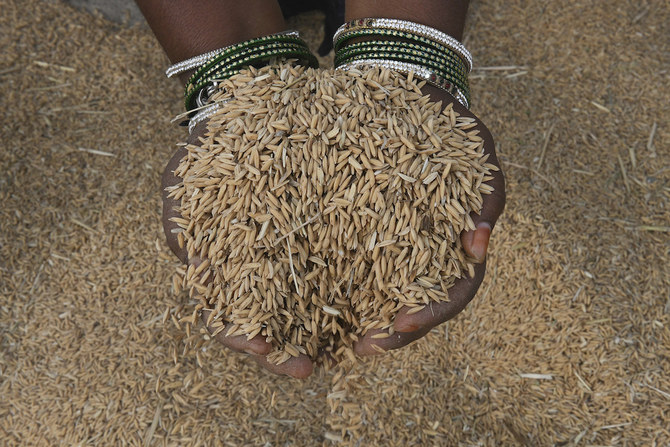
- ARAB NEWS
- 05 May 2024

LONDON: The UAE has banned rice exports and re-exports for four months, including rice of Indian origin, Emirates News Agency reported on Friday.
“The decision included banning the export and re-export of rice originating in the Republic of India imported into the country, including free zones, after July 20,” the statement said, adding that it applies to all rice varieties.
The UAE, which imports 90 percent of its food, said the ban would cover rice of all varieties including brown rice, fully or partially milled rice and broken rice.
Companies wishing to export or re-export rice must submit a request to the Ministry of Economy to obtain an export permit outside the country, WAM reported.
كما تنوه وزارة الاقتصاد بأن الشركات الراغبة في تصدير أو إعادة تصدير أنواع ومنتجات الأرز التي ليس منشأها جمهورية الهند، يجب أن تتقدم بطلب إلى وزارة الاقتصاد من أجل الحصول على إذن تصدير خارج الدولة
— Ministry of Economy – UAE (@Economyae) July 28, 2023
لمزيد من التفاصيل، يرجي زيارة الرابط التالي https://t.co/SM4yInqByM#وزارة_الاقتصاد pic.twitter.com/MN1gQU4jed
The permit would be issued “provided that the request is supported by all documents that help verify the data related to the shipment to be exported in terms of origin, the date of the transaction, and any other requirements that the ministry may require in this regard,” the statement added.
The ministry confirmed that the permits to export rice products will be valid for 30 days from the date of its issuance and must be submitted to the concerned customs department, in order to complete the customs procedures for exporting the shipment outside the country.
The ministry said that this decision can be extended automatically, unless a decision is issued to cancel its implementation.
The ban follows a decision by India’s government last week to halt exports of non-basmati white and broken rice amid an increase in prices and after late but heavy monsoon rains caused significant damage to the crops.
Local suppliers and supermarkets in the UAE were expecting prices to rise, albeit temporarily, local media reported this week.
Food price inflation weighed on the UAE and the wider Gulf for most of 2022, but started correcting this year.
India, which accounts for more than 40 percent of world rice exports, on Friday also decided to restrict exports of deoiled rice bran until Nov. 30.
(With Reuters)